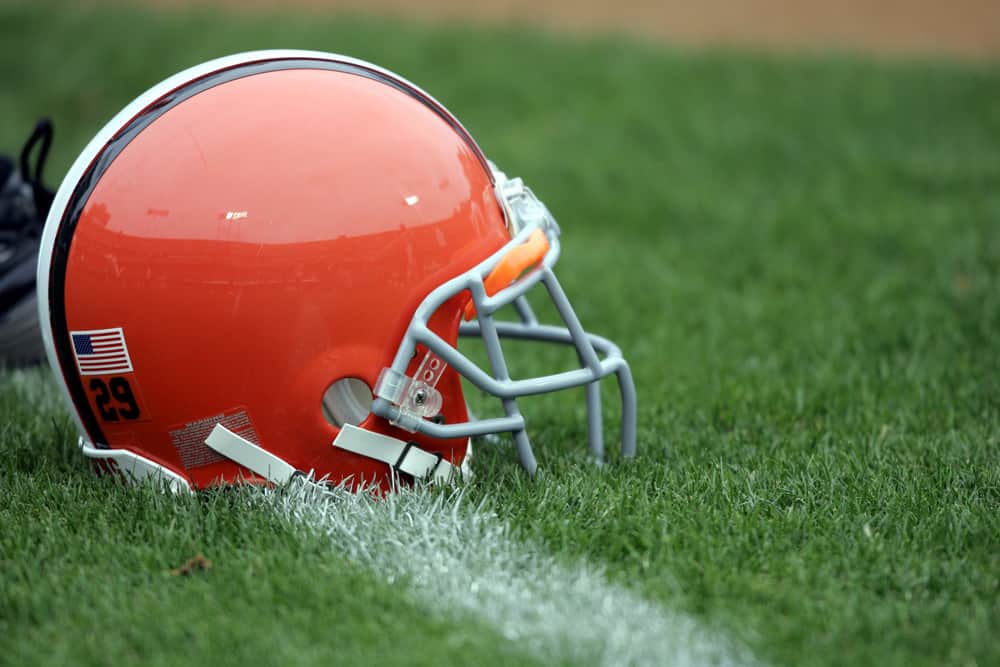
To have a successful career in the NFL, sometimes you need to be adaptable.
If one path to playing is unavailable, a player needs to find an alternative route to the playing field.
Ernie Kellerman had a successful college career at quarterback and was drafted by the Dallas Cowboys.
However, when neither playing quarterback nor playing for Dallas happened, Kellerman was adaptable and found a different path to an NFL career.
Kellerman played for eight seasons in the NFL as a defensive back.
He principally played for the Cleveland Browns from 1966 to 1971, helping the Browns win four division titles and earning Pro Bowl and All-Pro honors.
24 days til @Browns season opener! Get ready Dawg Pound! #ErnieKellerman #DawgPound #WeBarkTogether #Browns pic.twitter.com/jGJDJhWAqj
— Mark Slaughter (@mslaughter63) August 20, 2015
We take a look at the life of Ernie Kellerman – before, during, and after his NFL playing career.
The Early Years Before College
Ernie James Kellerman (sometimes referred to as Kellermann) was born on December 17, 1943 in Cleveland, Ohio.
He later said that the number one influence in his life was his mother, Flo.
She was an athlete and coached Little League Baseball.
One of the players on Kellerman’s Little League Baseball team was future professional golfer Tom Weiskopf.
Kellerman attended St. Peter Chanel High School, a Catholic high school in Bedford, Ohio.
Bedford is a suburb of Cleveland.
At St. Peter Chanel High School, Kellerman played quarterback and defensive back.
Kellerman was a member of the first graduating class at St. Peter Chanel High School in 1961.
After high school, Kellerman received a scholarship from Miami University (“Miami”), and he headed to Oxford, Ohio to attend college.
The College Years
At Miami, Kellerman earned letters playing football in 1962, 1963, and 1964.
Kellerman played quarterback (left-handed) at Miami.
In 1962, Kellerman (although just a sophomore, as Miami’s principal quarterback) completed 61 of 113 passes for 856 yards and seven touchdowns.
He also rushed for 371 yards and six touchdowns on 106 rushing attempts.
On October 13, 1962, Kellerman threw an 88-yard touchdown pass to Bob Jenks, helping Miami upset Purdue (then ranked ninth in the nation by the Associated Press) 10-7.
Miami posted an 8-2-1 record in 1962, including a 49-21 loss to Houston in the Tangerine Bowl on December 22, 1962.
In the Tangerine Bowl, Kellerman scored on a one-yard touchdown run and completed 17 of 40 passes for 205 yards and one touchdown.
Kellerman, in 1963, completed 68 of 134 passes for 895 yards and eight touchdowns.
In addition, Kellerman rushed for 358 yards and two touchdowns on 112 rushing attempts.
In 1963, Miami, coached by first-year head coach and future College Football Hall of Famer Bo Schembechler, had a 5-3-2 record.
As a senior, in 1964, Kellerman (who served as a co-captain) completed 88 of 149 passes for 1,260 yards and eight touchdowns.
He also rushed for 238 yards and six touchdowns on 104 rushing attempts.
Miami had a 6-3-1 record in 1964, including a 28-27 victory over Northwestern on October 17, 1964.
In each of his three seasons at Miami, Kellerman was named to the first team All-Mid-American Conference team.
Kellerman, in 1963, shared Miami’s Most Valuable Player award with Dave Mallory.
In 1964, Kellerman was the sole winner of Miami’s Most Valuable Player award.
With Kellerman at quarterback, Miami ranked in the top 25 (out of 120 teams) in the nation in average points scored per game in 1962 (ranked 23rd in the nation, with 21.9 average points scored per game), 1963 (ranked 20th in the nation, with 20.8 average points scored per game), and 1964 (ranked 20th in the nation, with 21.0 average points scored per game).
After Miami, Kellerman continued his football career in the NFL.
The Pro Football Years
1965-1968
The Dallas Cowboys drafted Kellerman in the 12th round of the 1965 NFL draft.
Kellerman was the 159th overall pick.
Ernie Kellerman, Ladies and Gentlemen. My Browns 60's trivia knowledge knows no bounds. pic.twitter.com/jEr0L0GAK8
— tripgreat (@tripgreat) December 31, 2015
As Dallas was to have Don Meredith, Craig Morton, and Jerry Rhome as quarterbacks on its 1965 roster, the Cowboys decided to have Kellerman try out at a different position than he played in college – defensive back.
However, Kellerman was waived by Dallas before the beginning of the 1965 season.
Kellerman’s NFL career could have thereby ended, except for the efforts of his college coach, Bo Schembechler.
Schembechler contacted Cleveland Browns head coach Blanton Collier and recommended that Cleveland sign Kellerman.
The Browns then signed Kellerman to their “taxi squad” (roughly the equivalent of today’s “practice squad”).
Kellerman practiced with Cleveland, but never played in a regular season game, in 1965.
Kellerman watched film and helped the Cleveland coaches chart plays
He considered the year valuable.
“The learning curve was phenomenal. . . . We looked at film of the last three games our opponents played. The mental prep was very helpful.”
In 1966, Kellerman (playing at a height of six feet and at a weight of 183 pounds) made the Browns roster and played in all 14 regular season games.
He also became a regular starter at right safety, starting 11 games.
On October 2, 1966, Kellerman had his first interception in a regular season game, which he returned for 11 yards.
Kellerman also was part of a Cleveland defense that forced six New York Giants turnovers and held New York to 50 rushing yards, as the Browns defeated the Giants 28-7.
The following game, on October 8, 1966, Kellerman had another interception, in a 41-10 Cleveland victory over the Pittsburgh Steelers.
With Kellerman on defense, the Browns forced six Pittsburgh turnovers and held the Steelers to 22 rushing yards.
Kellerman intercepted future Pro Football Hall of Fame Washington Redskins quarterback Sonny Jurgensen and returned the interception for 12 yards, in a 14-3 Cleveland win over Washington on November 20, 1966.
On December 17, 1966, Kellerman was part of a Browns defense that held the St. Louis Cardinals to 99 “net pass yards”, in a 38-10 Cleveland triumph over the Cardinals.
During the 1966 NFL regular season, in addition to the above-described three interceptions, Kellerman recovered one fumble.
Kellerman also contributed to the Browns defense ranking in the 1966 NFL regular season fifth in fewest total points allowed (259), first in forced turnovers (49), fourth in recovered fumbles (19), sixth in fewest passing yards allowed (2,372), tied for fifth in fewest passing touchdowns allowed (14), first in defensive pass interceptions (30), tied for sixth in lowest average yards per passing attempt allowed (6.5), and seventh in fewest rushing touchdowns allowed (12).
Cleveland had a 9-5 record in 1966.
Kellerman, in 1967, started all 14 regular season games at left safety.
On October 22, 1967, Kellerman’s play helped the Browns shutout the Chicago Bears 24-0.
Cleveland held the Bears to 20 rushing yards.
Kellerman intercepted future Pro Football Hall of Fame Green Bay Packers quarterback Bart Starr and returned the interception for nine yards, in a 55-7 Browns loss to Green Bay on November 12, 1967.
In addition to his interception against the Packers, Kellerman recovered one fumble during the 1967 NFL regular season.
With Kellerman at safety, the Cleveland defense ranked in the 1967 NFL regular season eighth in fewest total points allowed (297), seventh in forced turnovers (36), tied for fifth in recovered fumbles (14), tied for seventh in fewest passing touchdowns allowed (19), tied for eighth in defensive pass interceptions (22), fourth in sacks (41), and tied for seventh in lowest average yards per rushing attempt allowed (3.8).
Roy Jefferson makes a nice grab.
Ernie Kellerman interception pic.twitter.com/Bqvup8ayav— Old Time Football 🏈 (@Ol_TimeFootball) May 23, 2021
The Browns, with a 9-5 record, won the 1967 NFL Century Division title.
Cleveland advanced to play the Dallas Cowboys in the 1967 NFL playoffs on December 24, 1967.
Kellerman started the game and intercepted Dallas quarterback Craig Morton.
However, the Browns lost to the Cowboys 52-14.
In 1968, Kellerman again started all 14 regular season games at left safety.
On September 15, 1968, Kellerman intercepted New Orleans Saints quarterback Billy Kilmer and returned the interception for 12 yards, in a 24-10 Cleveland triumph over the Saints.
Kellerman had an interception, as the Browns defeated the Atlanta Falcons 30-7 on October 27, 1968.
In a 45-24 Cleveland victory over the Pittsburgh Steelers on November 17, 1968, Kellerman had an interception.
The following week, on November 24, 1968, Kellerman intercepted Philadelphia Eagles quarterback Norm Snead, in a 47-13 Browns win over Philadelphia.
In the next game, on December 1, 1968, Kellerman had an interception, which he returned for six yards, in a 45-10 Cleveland defeat of the New York Giants.
Kellerman also helped the Browns force five Giants turnovers and hold New York to 77 “net pass yards”.
The following week, on December 8, 1968, in a 24-21 Cleveland victory over the Washington Redskins, Kellerman had an interception for the fourth consecutive game.
Kellerman intercepted Sonny Jurgensen and returned the interception for 11 yards.
With the above-described six pass interceptions, Kellerman ranked tied for 10th in pass interceptions for the 1968 NFL regular season.
Kellerman helped the Browns defense rank in the 1968 NFL regular season seventh in fewest total points allowed (273), eighth in fewest total passing and rushing yards allowed (4,090), first in forced turnovers (46), tied for seventh in recovered fumbles (14), sixth in lowest pass completion percentage allowed (48.5%), eighth in fewest passing yards allowed (2,248), tied for eighth in fewest passing touchdowns allowed (19), first in defensive pass interceptions (32), tied for first in lowest average yards per passing attempt allowed (5.6), and tied for sixth in fewest rushing touchdowns allowed (11).
For his play in 1968, Kellerman was invited to the Pro Bowl.
Cleveland, with a 10-4 record, again won the NFL Century Division title in 1968.
In the 1968 NFL playoffs, the Browns first met the Dallas Cowboys on December 21, 1968.
Kellerman started the game (at strong safety), and his play helped Cleveland force four Cowboys turnovers and limit Dallas to only 12 completions from 32 passing attempts.
The Browns avenged their 1967 playoff loss to Dallas, defeating the Cowboys 31-20.
Cleveland then advanced to play the Baltimore Colts in the 1968 NFL championship game on December 29, 1968.
Kellerman started the game (at strong safety), but the Browns lost to Baltimore 34-0.
1969-1973
In 1969, Kellerman played in and started 11 regular season games at left safety.
Kellerman was part of a Cleveland defense that held the Washington Redskins to 98 “net pass yards”, in a 27-23 Browns win over Washington on September 28, 1969.
On November 16, 1969, Kellerman intercepted Pittsburgh Steelers quarterback Terry Hanratty, in a 24-3 Cleveland triumph over the Steelers.
In a 28-24 Browns defeat of the Chicago Bears on November 30, 1969, Kellerman was part of a Cleveland defense that held Chicago to 97 “net pass yards”.
The following week, on December 7, 1969, Kellerman intercepted Green Bay Packers quarterback Don Horn and returned the interception for a 40-yard touchdown (Kellerman’s only touchdown in an NFL regular season game during his career).
'69 vs Green Bay. Leroy Kelly ran for 151 yds., Paul Warfield caught a TD and didn't enjoy the hit, then Ernie Kellerman sealed it with an INT return for a TD. Final: Browns 20 Packers 7 #ClevelandBrowns #Browns pic.twitter.com/2F2kbCh0hj
— Cleveland Municipal Browns (@BrownsMunicipal) August 8, 2020
The Browns defeated the Packers 20-7.
In the next game, on December 14, 1969, Kellerman intercepted St. Louis Cardinals quarterback Charley Johnson, as Cleveland defeated St. Louis 27-21.
Kellerman, in addition to the above-described three pass interceptions, contributed to the Browns defense ranking in the 1969 NFL regular season tied for fourth in forced turnovers (41), second in recovered fumbles (22), eighth in fewest passing yards allowed (2,464), eighth in fewest passing touchdowns allowed (19), tied for seventh in defensive pass interceptions (19), and fifth in sacks (37).
For his play in 1969, Kellerman was named a second team All-Pro by the New York Daily News.
Cleveland posted a 10-3-1 record, and won the NFL Century Division title for the third consecutive year, in 1969.
In the 1969 NFL playoffs, the Browns first played the Dallas Cowboys on December 28, 1969.
Kellerman started the game (at strong safety), and his play helped Cleveland force three Cowboys turnovers and limit Dallas to only 12 completions from 29 passing attempts.
The Browns defeated the Cowboys 38-14, eliminating Dallas from the playoffs for the second consecutive year.
The following week, on January 4, 1970, in the 1969 NFL championship game, Cleveland met the Minnesota Vikings.
Kellerman started the game (at strong safety), but the Vikings defeated the Browns 27-7.
In 1970, Kellerman started all 14 regular season games at strong safety.
Kellerman’s play helped Cleveland shut out the Miami Dolphins 28-0 on October 25, 1970.
The Browns held Miami to 46 “net pass yards”.
On November 22, 1970, in a 28-14 Cleveland victory over the Houston Oilers, Kellerman intercepted Charley Johnson (now with the Oilers) and returned the interception for 18 yards.
In a 6-2 Browns loss to the Dallas Cowboys on December 12, 1970, Kellerman helped Cleveland hold Dallas to 52 “net pass yards”.
Kellerman recovered one fumble, in addition to his above-described one pass interception, in the 1970 NFL regular season.
The Browns had a 7-7 record in 1970.
Kellerman played in all 14, and started two, regular season games in 1971.
In a 31-0 Cleveland shutout of the Houston Oilers on September 19, 1971, Kellerman was part of a Browns defense that forced six Houston turnovers and held the Oilers to 35 rushing yards.
The following week, on September 26, 1971, in a 14-13 Cleveland defeat of the Baltimore Colts, Kellerman was part of a Browns defense that forced eight Colts turnovers and held Baltimore to 41 “net pass yards”.
Kellerman was part of a Cleveland defense that held the Denver Broncos to 85 “net pass yards”, in a 27-0 Browns loss to Denver on October 24, 1971.
On November 7, 1971, in a 26-9 Cleveland loss to the Pittsburgh Steelers, Kellerman (who started the game) intercepted future Pro Football Hall of Fame Pittsburgh quarterback Terry Bradshaw.
Kellerman had an interception, in a 37-24 Browns win over the Houston Oilers on November 28, 1971.
He also was part of a Cleveland defense that forced five Oilers turnovers and held Houston to 46 rushing yards.
The following week, on December 5, 1971, Kellerman intercepted Cincinnati Bengals quarterback Virgil Carter, in a 31-27 Browns triumph over Cincinnati.
In the next game, on December 12, 1971, Kellerman was part of a Cleveland defense that held the New Orleans Saints to 66 “net pass yards”, in a 21-17 Browns victory over the Saints.
During the 1971 NFL regular season, in addition to the above-described three pass interceptions, Kellerman recovered one fumble.
He also returned one kickoff for five yards and one punt for four yards.
Kellerman contributed to the Cleveland defense ranking in the 1971 NFL regular season tied for eighth in forced turnovers (40), third in lowest pass completion percentage allowed (46.0%), fourth in fewest passing yards allowed (1,967), tied for eighth in fewest passing touchdowns allowed (12), eighth in defensive pass interceptions (24), and seventh in lowest average yards per passing attempt allowed (6.4).
With a 9-5 record, the Browns won the AFC Central Division title in 1971.
In connection with the merger of the American Football League and the NFL, Cleveland had changed divisions from the NFL Century Division to the AFC Central Division in 1970.
The Browns, in the 1971 NFL playoffs, met the Baltimore Colts on December 26, 1971.
Kellerman played in, but did not start, the game, as Cleveland lost to the Colts 20-3.
Before the start of the 1972 NFL regular season, the Browns released Kellerman on September 12, 1972.
Kellerman then signed with the Cincinnati Bengals and played in all 14, but did not start any, regular season games for the Bengals in 1972.
Cincinnati had an 8-6 record in 1972.
After one season with the Bengals, Kellerman signed with the Buffalo Bills in 1973.
Kellerman played in and started 10 regular season games at strong safety with the Bills in 1973.
He intercepted two passes, which he returned for 23 yards, and recovered two fumbles.
Buffalo posted a 9-5 record in 1973.
Kellerman retired from the NFL before the start of the 1974 NFL regular season.
The Years After Professional Football
After his retirement from the NFL, Kellerman remained in the Cleveland area.
Kellerman (who taught science and gym at Beachwood High School in Beachwood, Ohio (a suburb of Cleveland) for a few football off-seasons) has had a career in industrial sales.
He also has frequently spoken at elementary school, high school and Cleveland Browns alumni and charity events.
In 1972, Kellerman was inducted into the Miami Athletics Hall of Fame.
Kellerman also was inducted into the Greater Cleveland Sports Hall of Fame in 2010.
We are very excited to announce that @Browns alum Ernie Kellerman will be attending our Kick-Off on March 12th! pic.twitter.com/pT0H6kVY5g
— UCP of Greater CLE (@UCPcleveland) March 4, 2015
Several points should be noted about Kellerman’s career with the Browns.
First, Kellerman was excellent at creating turnovers.
He ranks tied for 20th in Cleveland career regular season pass interceptions (17).
In addition, Kellerman had a playoff interception and four fumble recoveries with the Browns.
Second, while creating turnovers attracts the most attention, Kellerman also was very good at the other skills necessary to be an effective defensive back in the NFL – tackling and pass coverage.
Kellerman’s play helped the Cleveland defense regularly rank high in the NFL in various defensive statistical categories.
Third, Kellerman’s talent was recognized when he received Pro Bowl honors in 1968 and All-Pro honors in 1969.
Fourth, Kellerman was the ultimate winner.
He never played on a team (including when he played on the Bengals and the Bills) that had a losing season.
Over his six seasons playing for the Browns, Kellerman won four division titles.
He also won playoff games in consecutive seasons in 1968 and 1969.
Other than the 1986 and 1987 Cleveland teams, no other Browns teams have won playoff games in consecutive seasons since 1969.
These achievements by Kellerman are especially impressive given that his road to NFL success was not a typical one.
Most NFL players who achieve NFL success do it at the position at which they excelled in college.
However, while Kellerman was an excellent college quarterback, he never played quarterback (or even threw a pass) in the NFL.
Most NFL players who achieve NFL success spend at least some time (if not the majority of time) with the team that drafted them.
However, while Kellerman was drafted by the Dallas Cowboys, he never played in a regular season game for them (and, in an ironic twist, earned his two playoff victories against Dallas).
Kellerman’s general adaptability probably helped him have the flexibility to play different safety positions (right safety, left safety, and strong safety) in Cleveland’s defensive backfield.
Cleveland Browns fans should appreciate Ernie Kellerman’s adaptability.
By becoming a defensive back for the Browns, instead of a quarterback for the Cowboys, Kellerman helped Cleveland achieve team success at the end of the 1960’s and the beginning of the 1970’s.
NEXT: The Life And Career Of Jim Copeland (Complete Story)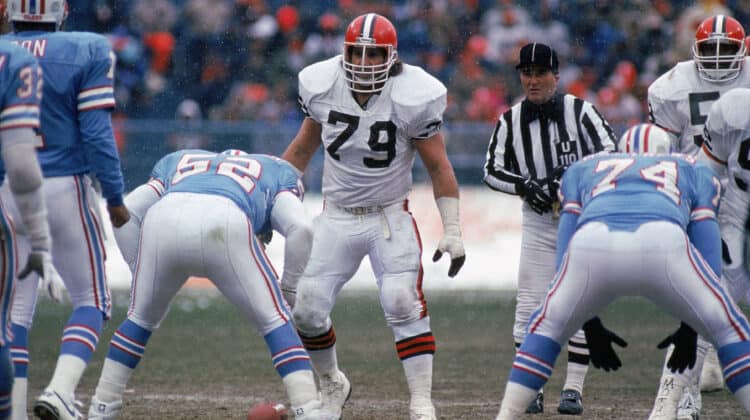
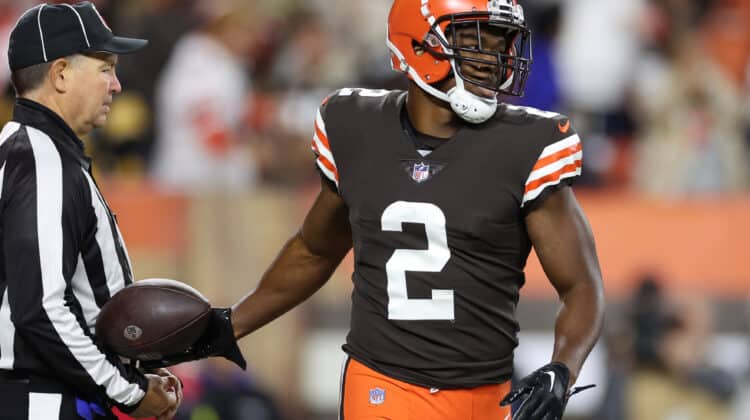
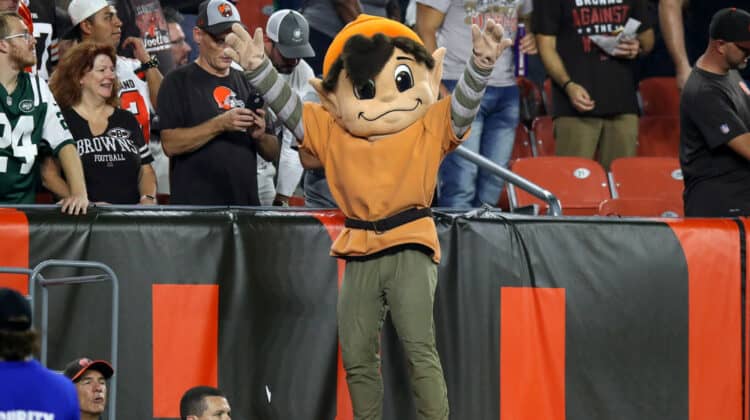
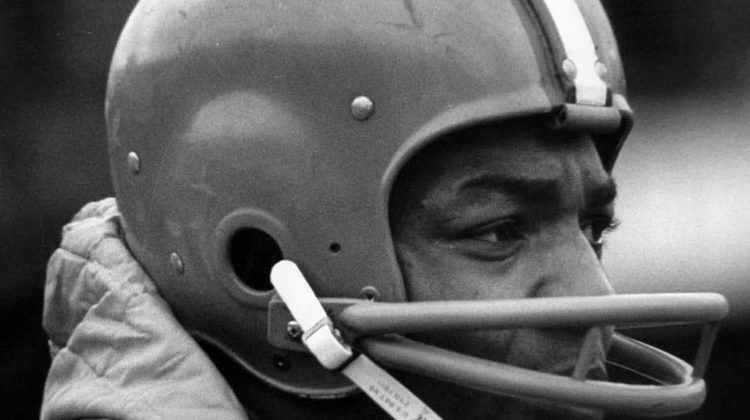
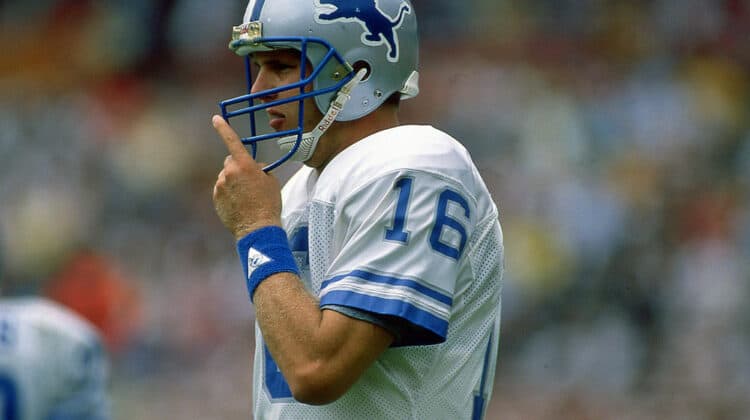
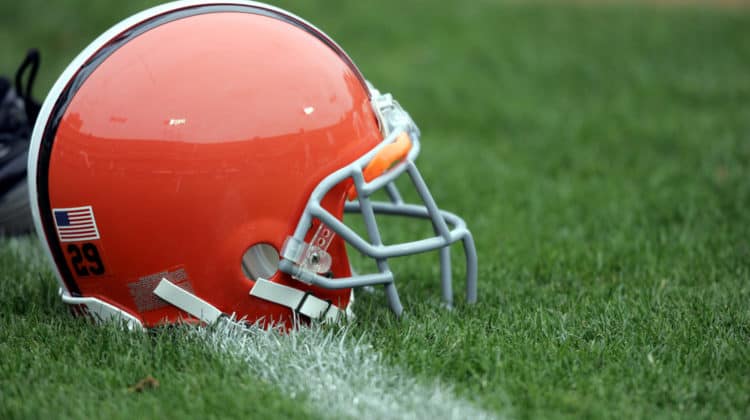
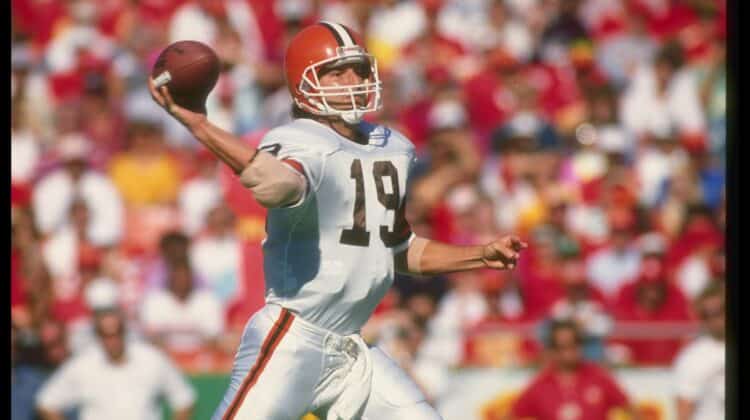
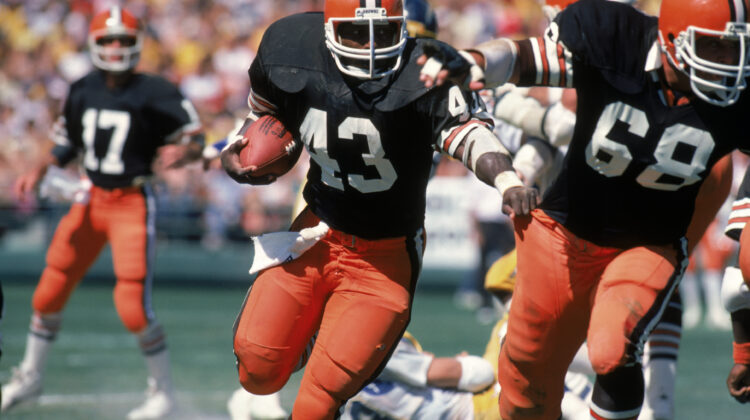
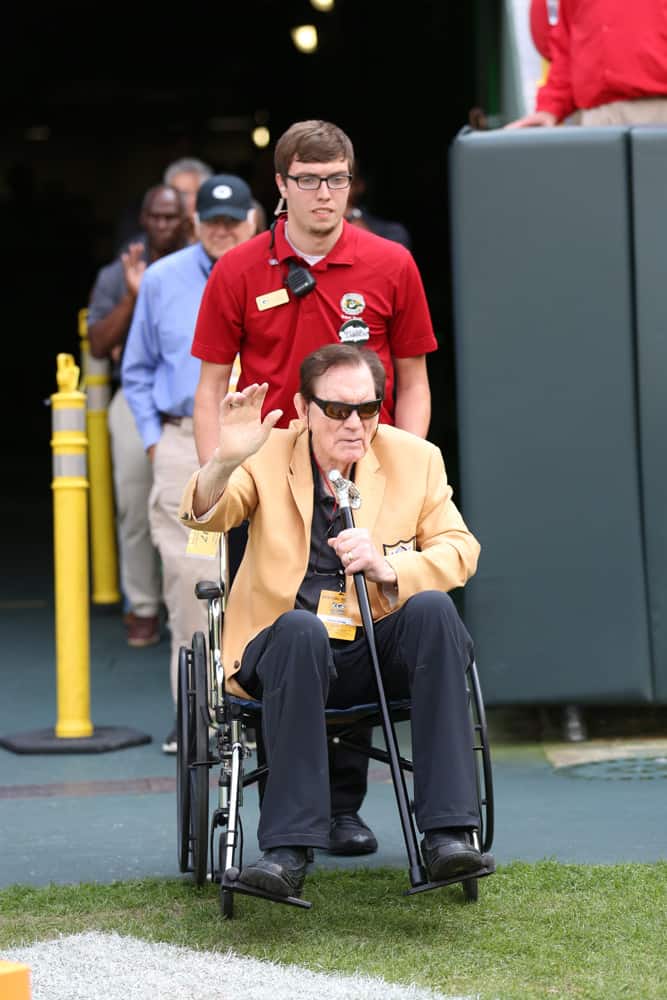
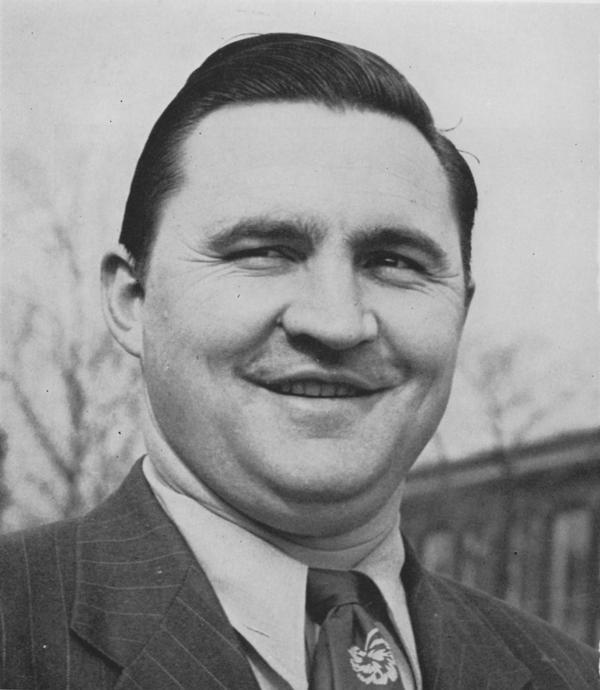

My favorite Cleveland Browns player of all time ! Was thrilling to watch him on TV